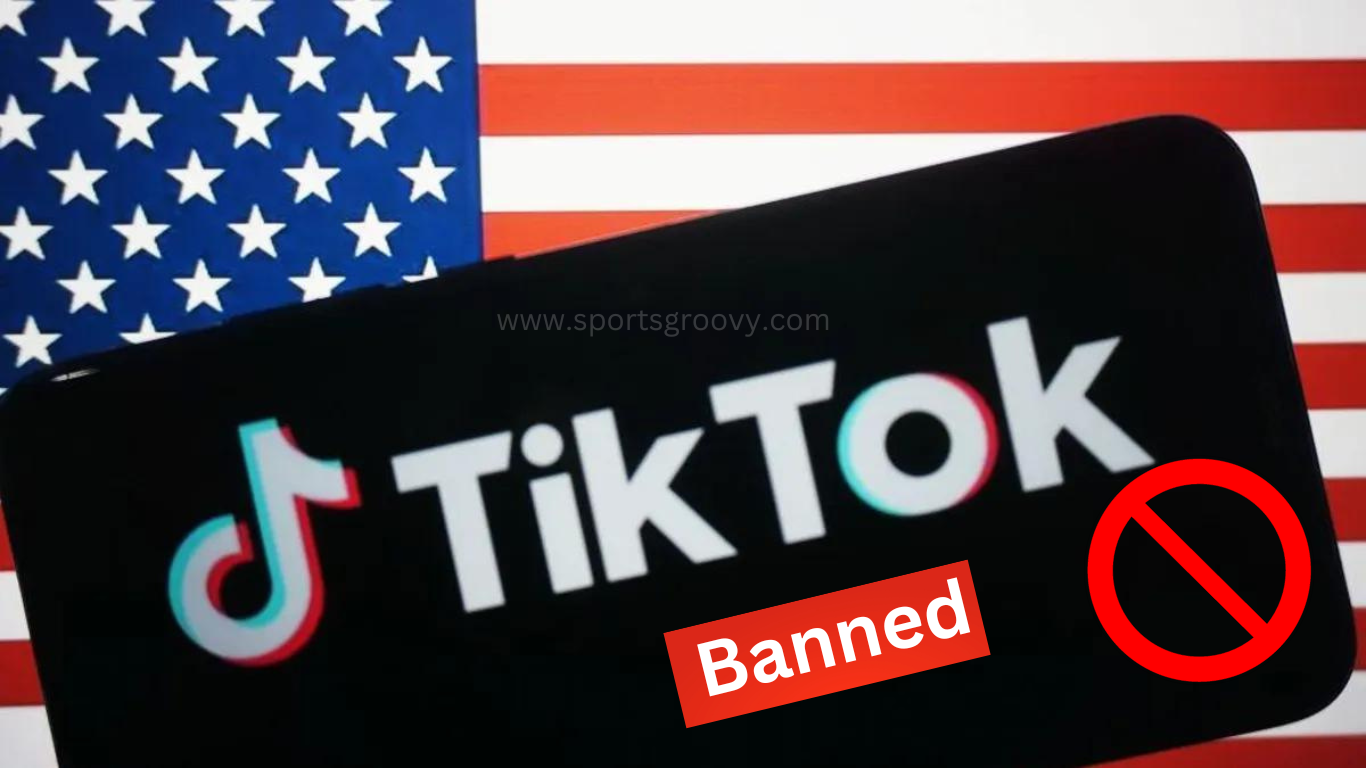Entertainment
Did the US lose ability to scroll on TikTok by legislation in the US House?

Opponents of a possible TikTok ban in the United States are now looking to the Senate for support. This comes as the House of Representatives is getting ready to send a big foreign aid package to the Senate.
The U.S. government is getting closer to banning TikTok, a popular video social media app. This happened after the House of Representatives added this measure to an emergency spending bill on April 17, 2024. Putting it in this bill might make it more likely to pass in the Senate. President Joe Biden has said he would sign the bill if it gets to him.
The bill would compel ByteDance, the Chinese company that owns TikTok, to either sell its American assets to a US company or face a ban in the country. ByteDance has said it will resist any attempts to make it sell.
The new law idea came because of worries about safety. People are concerned that ByteDance might have to help the Chinese government get information. This means the data TikTok collects could be used by China.
TikTok’s meteoric rise in popularity within the United States has positioned it as a significant cultural force, particularly among the younger demographic. This platform, known for its short-form videos and algorithmically curated content, has garnered immense attention, with millions of users regularly engaging with its diverse array of content. However, alongside its entertainment value, TikTok’s influence extends beyond merely providing a source of amusement; it has also become a noteworthy source of news consumption for many young Americans.
Statistics indicate that a considerable portion of Americans under the age of 30 rely on TikTok as a primary or supplementary source of news. Specifically, around one-third of this demographic reportedly turn to TikTok to stay informed about current events, social issues, and political developments.This statistic highlights how the platform is increasingly becoming a conduit for information dissemination, especially among digitally native generations who habitually access content through social media channels.
However, TikTok’s roots as a Chinese-owned platform have sparked concerns regarding its potential for political influence. Considering the platform’s immense reach and influence, people have apprehensions about how it could potentially shape narratives and perceptions, both domestically within the U.S. and internationally. Critics argue that TikTok’s ownership by ByteDance. A Chinese company, raises questions about the platform’s susceptibility to influence or manipulation by the Chinese government.
The intersection of TikTok’s popularity and its Chinese ownership raises complex geopolitical considerations. Some fear that the Chinese government could exploit TikTok as a tool for political influence. Whether through subtly shaping content algorithms to promote certain narratives, censoring politically sensitive topics. And disseminating propaganda disguised as entertainment or news. The concern is not merely speculative; it reflects broader anxieties about the role of technology platforms. Within shaping public discourse and opinion, especially in an era of increasing geopolitical tensions and information warfare.
Furthermore, the data collection practices of TikTok have also raised eyebrows among policymakers and privacy advocates. Because of its Chinese ownership, people are concerned that the Chinese government could access or exploit user data for intelligence purposes or to surveil individuals, including Americans. These concerns have prompted regulatory scrutiny and calls for greater transparency and accountability from TikTok and its parent company.
In summary, TikTok’s popularity among young Americans as a source of news, combined with its Chinese ownership. It presents a complex landscape fraught with implications for political influence, privacy, and national security. While the platform undoubtedly serves as a vibrant space for creative expression and social connection. Its potential as a tool for political influence underscores the need for vigilant oversight and scrutiny to safeguard democratic principles and national interests.
The U.S. Office of the Director of National Intelligence, which keeps an eye on important information for the country. It is said something important about TikTok. They said that during the 2022 U.S. midterm elections. Some TikTok accounts were run by a Chinese government group that spreads propaganda. These accounts targeted candidates from both the Democratic and Republican parties. They were trying to influence the election.
Now, they’re saying that in the upcoming 2024 U.S. elections, the Chinese Communist Party might try to do the same thing. Their goal could be to make it harder for people who criticize China to get heard and to make divisions in American society bigger.
Argumentation:
This news is serious because it shows how social media platforms like TikTok can be used to try to influence elections in other countries. It also raises concerns about foreign governments interfering in the democratic process of the United States. So, it’s something that people need to be aware of and watch out for as elections approach.
Supporters of the legislation to restrict TikTok have added two more reasons why they think it’s a good idea. First, they say it’s fair to limit TikTok because China doesn’t allow most U.S.-based social media networks to work there. They argue that if China can do it, then the U.S. can do the same thing.
Second, they point out that the U.S. already has rules about foreign ownership of important media networks. These rules are meant to protect the country’s interests and ensure that foreign governments. Don’t have too much influence over American media. So, they say, banning or restricting TikTok wouldn’t be anything new or unusual. It would just be following similar rules that already exist for other media networks.
These arguments suggest that restricting TikTok’s operations in the U.S. is a reasonable. Because China’s own restrictions on American social media and existing rules about foreign ownership in the media industry.
Strong Arguments:
Critics argue that restricting TikTok isn’t the solution to concerns about data privacy and foreign influence. They point out that even without TikTok, the Chinese government could still access plenty of data about Americans. How? By simply buying it from data brokers. Unlike some other countries, the U.S. doesn’t have strong federal laws to protect people’s data privacy. This means that companies can collect and sell vast amounts of personal information without much oversight.
Additionally, critics highlight the irony of using China’s own practices as a justification for banning TikTok. They note that China, often criticized for its authoritarian regime, does indeed ban certain social media platforms. However, they argue that this doesn’t mean the U.S. should follow suit. Instead, they advocate for upholding principles of free speech and access to information, even if other countries don’t.
In essence, these critics argue that addressing data privacy concerns and protecting against foreign influence requires. It is more comprehensive solutions than simply banning a single social media platform. They emphasize the need for stronger data privacy laws in the U.S. and a nuanced approach to addressing geopolitical challenges without compromising on fundamental rights and values.
I agree with you. While the concerns about TikTok are significant, simply banning the app might not address the root issues. Let’s break it down.
Firstly, the move against TikTok overlooks a bigger problem: the decline in the quality of information sources available to Americans. In recent years, the rise of social media has drastically changed how people consume news and information. Traditional news outlets, once considered reliable sources, are now competing with a flood of content on various social media platforms. This abundance of information, often unchecked for accuracy and bias. It has led to a decline in the overall quality of information available to the public.
Secondly, your research at UMass Boston’s Applied Ethics Center highlights the impact of AI systems on how people perceive themselves. AI algorithms, including those used by social media platforms like TikTok. It’s play a significant role in shaping the content users see and how they engage with it. These algorithms maximize user engagement by promoting content that elicits strong emotional responses or reinforces existing beliefs. As a result, users may encounter a narrow range of perspectives, which further exacerbates echo chambers and polarizes discourse.
So, while addressing the specific concerns about TikTok is important. It’s crucial to recognize that the problem extends beyond any single platform. Instead, efforts should focus on promoting media literacy, enhancing transparency and accountability in algorithmic systems. And fostering a diverse and inclusive media landscape. By addressing these broader issues, we can work towards a more informed and resilient society in the digital age.
Quality in the Digital Age:
The argument for banning TikTok based on its influence over young Americans and its potential for political manipulation is strong. However, the proposed solution of transferring ownership overlooks a more profound issue.
The core problem isn’t solely about the Chinese government’s ability to manipulate content on TikTok. It’s about the broader acceptance of social media as a primary source of news. In essence, the real vulnerability lies in people relying on social media platforms for their information.
Social media platforms aren’t primarily designed to inform users; their main goal is to capture attention for advertisers. This business model, common across all platforms, prioritizes content that generates high engagement, often at the expense of quality or accuracy. This is why users frequently encounter divisive and sensational content on social media. Posts that provoke strong emotions tend to grab attention and keep users engaged, which is precisely what advertisers want.
The issue extends beyond TikTok to encompass all social media platforms. The danger lies not just in the specific content disseminated on TikTok, but in the broader trend of relying on social media for news consumption. By doing so, people unwittingly expose themselves to a distorted, sensationalized version of reality.
Addressing this deeper problem requires a shift in how society views and consumes news. It entails promoting media literacy and critical thinking skills to help individuals navigate the vast landscape of digital information responsibly. Moreover, it necessitates reevaluating the role of social media in the dissemination of news and exploring alternative, more reliable sources of information.
In essence, while banning TikTok may address immediate concerns, it’s merely a Band-Aid solution. To truly safeguard national security and ensure informed citizenry, we must confront the deeper issue of overreliance on social media for news consumption.
There’s a crucial distinction between actively seeking out reliable information and passively succumbing to content designed to capture attention for profit. The former is vital for democratic citizenship, as it empowers individuals to make informed decisions about political matters. However, the latter amounts to allowing one’s attention to be manipulated for the financial gain of others.
While banning TikTok may seem like a solution, it merely addresses a symptom of a larger issue. If TikTok users migrate to platforms like Instagram and YouTube, owned by Meta and Google respectively, the fundamental problem remains: people are still exposed to sensationalized and unreliable information. This not only fails to enhance national security but also perpetuates the cycle of misinformation.
Moreover, history demonstrates that other social media platforms, including Facebook and Twitter, are susceptible to manipulation. The Russian interference in the 2016 election serves as a poignant example of how these platforms can be exploited for nefarious purposes.
To effectively address this challenge, we must strive for a balance between information consumption and platform accountability. Encouraging active engagement with reputable sources of information is essential for fostering an informed citizenry. Simultaneously, holding social media platforms accountable for their role in shaping public discourse is crucial. This includes implementing measures to combat misinformation, enhancing transparency in content moderation practices, and promoting digital literacy among users.
By recognizing the dual nature of information consumption in the digital age and taking proactive steps to mitigate its negative impacts, we can safeguard democratic principles while promoting a healthier and more informed society.
Cultivating Media Literacy in the Digital Age:
The prevailing trend of relying on information outlets more interested in capturing attention than informing the public poses a significant obstacle to meaningful political participation. This challenge cannot be addressed solely by restricting access to foreign apps; it requires a comprehensive approach focused on cultivating media and technology literacy, particularly among young people.
Research indicates that effective solutions to this problem lie in ingraining habits of media literacy from an early age. This entails educating youth about how social media companies profit, how algorithms shape their digital experiences, and how different types of content impact them psychologically.
Recognizing the urgency of this issue, my colleagues and I have launched a pilot program in collaboration with the Boston Mayor’s Youth Council. Through this initiative, we engage with young leaders to illuminate the ways in which everyday technologies compromise their privacy, influence their preferences through algorithms, and shape their cognitive processes through generative AI.
Our program aims to equip participants with evidence about the negative effects of excessive social media use on mental health and encourage them to develop a healthy skepticism toward content encountered on these platforms. By fostering an understanding of the importance of disconnecting from digital devices and promoting critical evaluation of online content, we empower young people to navigate the digital landscape more discerningly.
Crucially, addressing this challenge requires bipartisan attention and may face resistance from both tech users and companies. However, prioritizing measures to enhance media and technology literacy is essential for nurturing thoughtful citizens who actively engage with information rather than passive consumers manipulated by commercial and political interests.
In essence, by prioritizing media literacy initiatives, we can safeguard individuals’ capacity for critical thinking and ensure that they are equipped to navigate the complexities of the digital age responsibly.
-

 Soccer4 months ago
Soccer4 months agoDutch Fans in Blackface to Imitate Ruud Gullit, One Agrees to Stop
-

 Soccer4 months ago
Soccer4 months agoEx Glamour Model Says Party with England Team Before Euros
-

 Soccer4 months ago
Soccer4 months agoArgentina vs Peru 2-0 Highlights & All Goals Copa America 2024
-

 News6 months ago
News6 months agoDubai Flood, Rain Turns Desert to Aquarium🌧️🐠
-

 NBA4 months ago
NBA4 months agoCelebrate with the Boston Celtics: Parade and Traffic Updates
-

 Soccer4 months ago
Soccer4 months agoUEFA EURO 2024: Essential Guide and Key Information
-

 Celebrity5 months ago
Celebrity5 months agoDavid Sanborn, American Alto Saxophonist, Died at Age 78
-

 Entertainment5 months ago
Entertainment5 months agoNorthern Lights Again Return near California-Oregon Border This Saturday
















Pingback: Julie Andrews Journey from Silence to Storytelling - Sports Groovy
Pingback: Islanders Remain Committed to Strategy, Gear Up to Crack Andersen's Defense in Game 2 - Sports Groovy